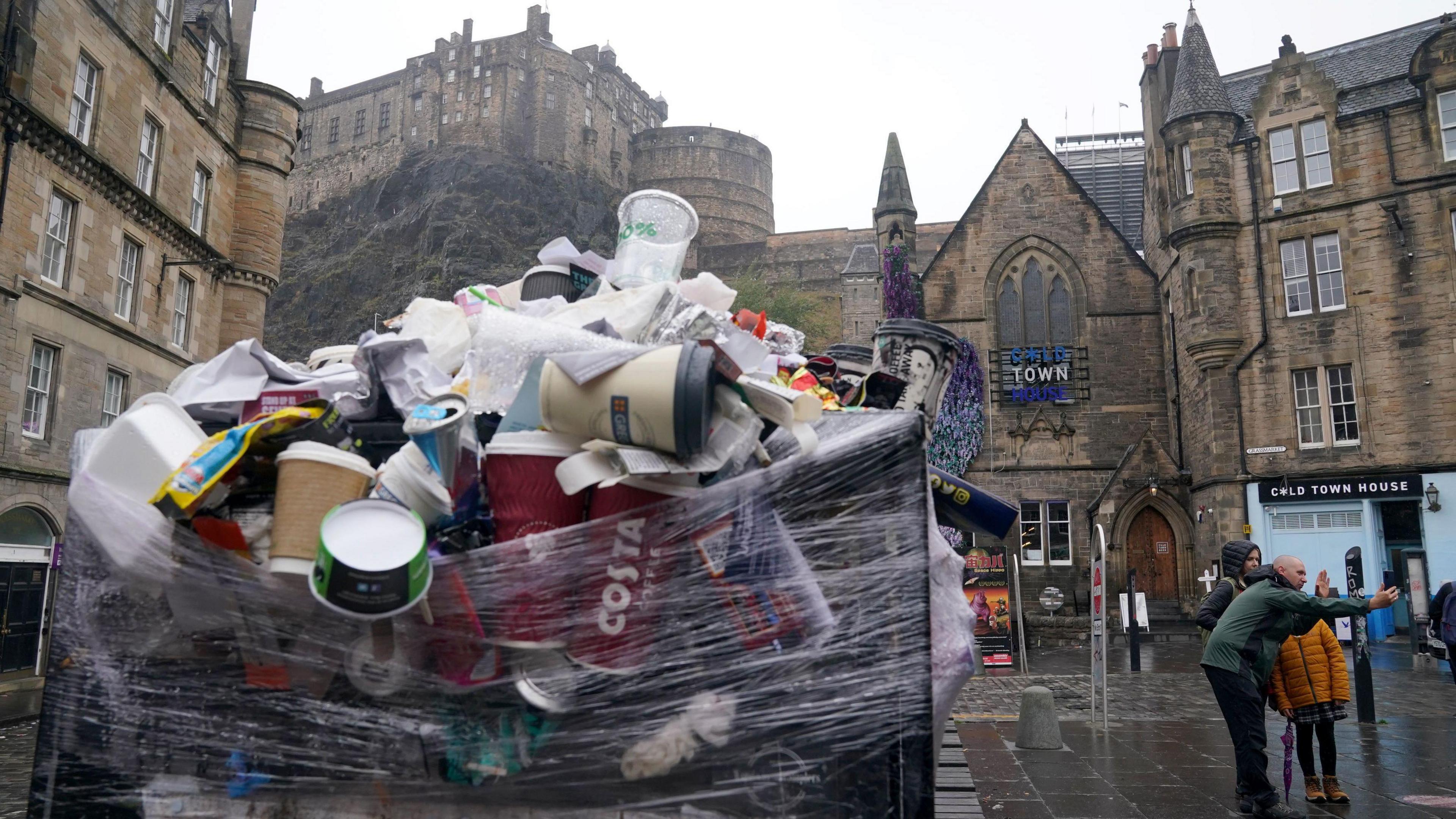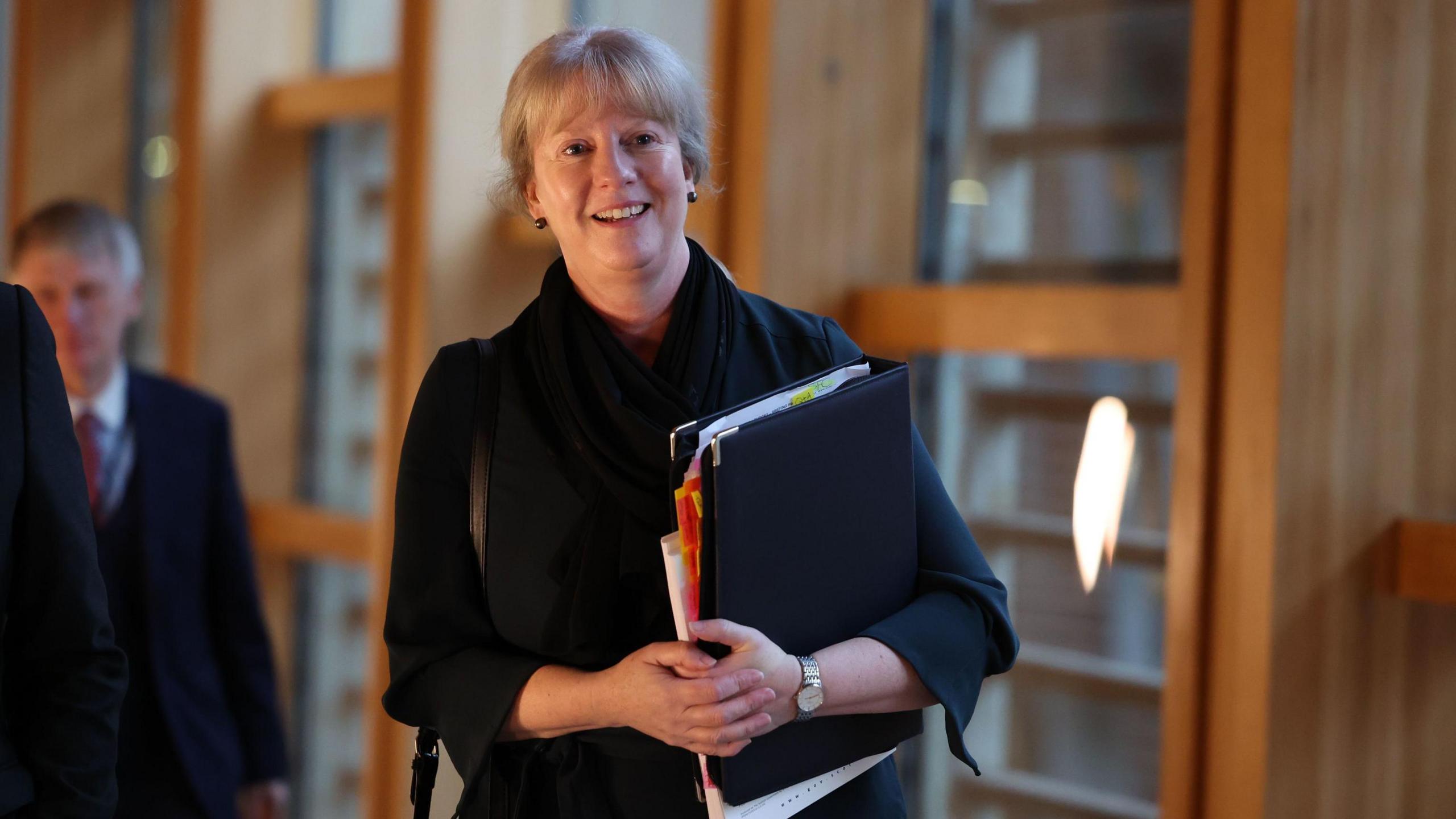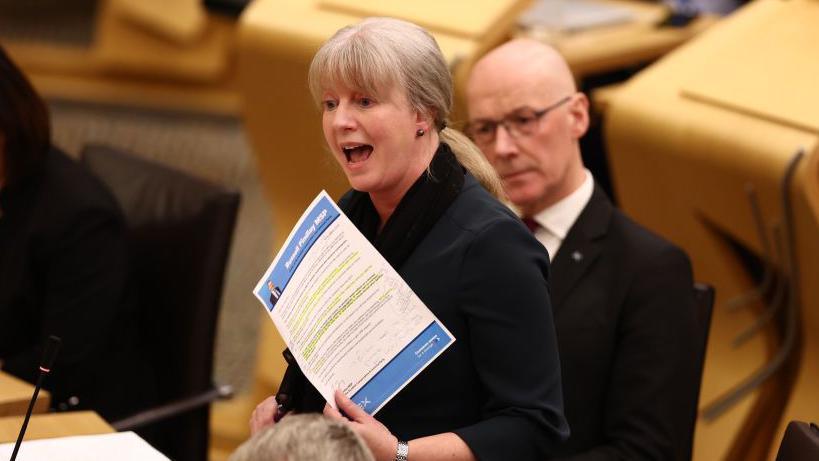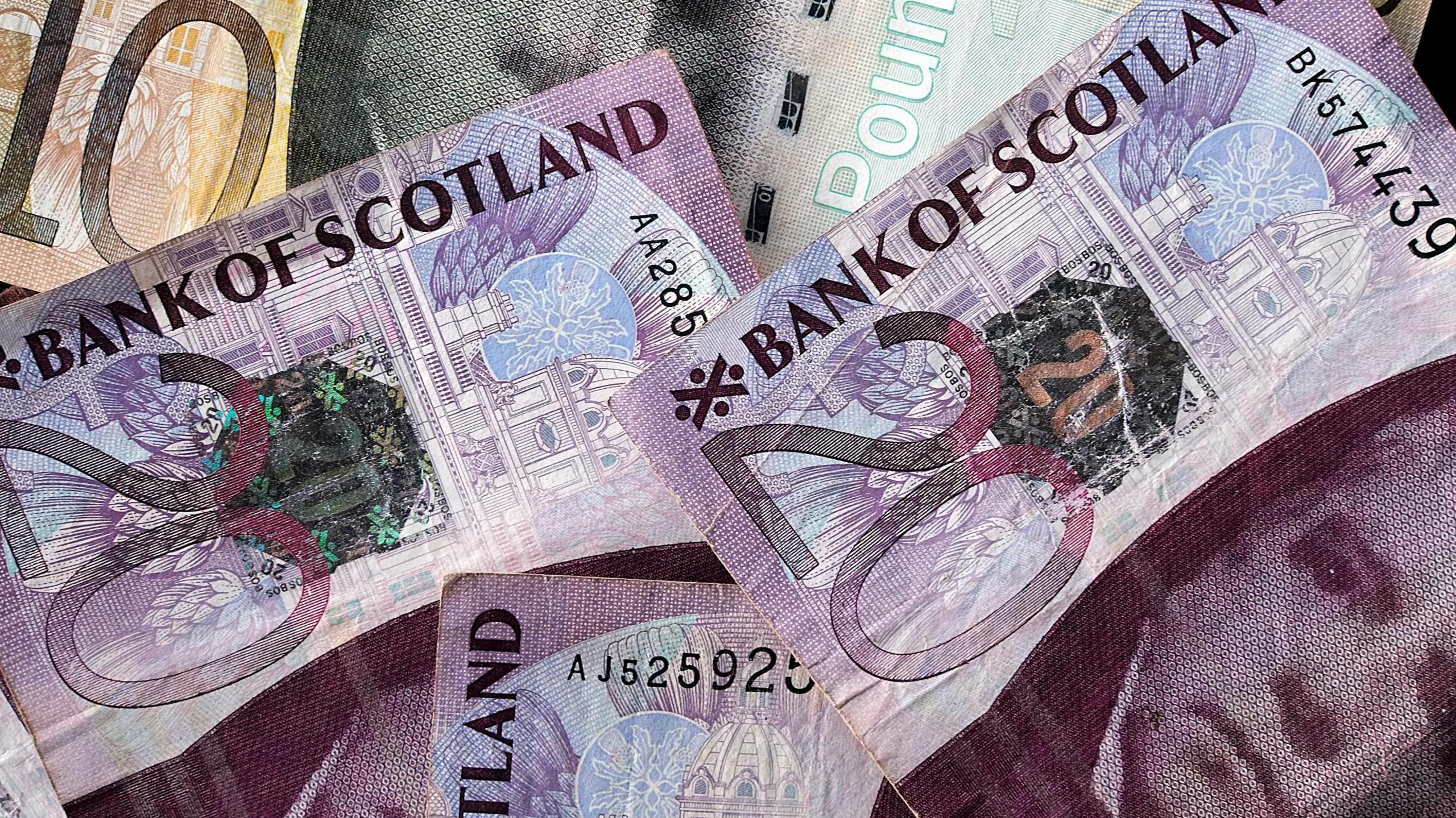Restoring council budgets will take time - Cosla

Cosla welcomed an additional £1bn funding from the Scottish Budget, but warned it will take time for local authority's financial positions to recover
- Published
Council leaders have given a guarded welcome to the Scottish Budget announced on Wednesday.
Following a meeting of umbrella body Cosla, council leaders welcomed an increase in funding, but said it would take more than a year to restore their finances.
The Scottish government says it is offering local authorities an extra £1bn and hopes large council tax rises will not be needed.
Individual authorities are likely to decide on local council tax rises in February, which would then take effect from April.
SNP government vows to scrap two-child benefit cap
- Published4 December 2024
Scottish Budget 2025-26: At a glance
- Published4 December 2024
In a statement, Cosla said: "We must work together constructively to empower councils locally to invest in local priorities.
"We welcome the commitment that there will be no cap or freeze on council tax, accepting the principle that decisions on council tax are for individual local authorities.
"We also welcome the fact that the first minister and cabinet have delivered on their commitment, in line with the Verity House Agreement, that there would be substantive engagement with Cosla prior to the setting of the Budget."

Finance secretary Shona Robison announced an additional £1bn in funding for council's in Wednesday's budget
But Cosla also called for additional resources.
These includes more flexibility over how some Scottish government money is spent and the immediate release of £145m to fund teacher numbers.
Cosla also said it would be unacceptable if councils had to foot the bill for changes to National Insurance contributions.
The Scottish government argues that the funding offer means large council tax rises should be unnecessary.
Several councils have recently been discussing rises which are well above inflation - in Perth and Kinross there is a proposal for a 10% rise.
'Ringfenced' funding
Individual councils will be looking carefully at what the Scottish government's funding offer means for them in the coming days.
They will assess more than the total amount of money being offered. They will also look at how much flexibility they have on spending it.
Some of the money will be ringfenced by the government, so it has to be spent on particular services or projects.
Last year, many councils were unhappy about an unexpected freeze to the council tax nationally.
Both the freeze itself - and the way it was announced by then-first minister Humza Yousaf with no prior warning or discussions - frustrated some local authority leaders, who felt the move was disrespectful to local government.
With no attempt being made to limit rises next year, it will be up to each council to decide what to do when local budgets are agreed.
Most councils are either coalitions or minority administrations which rely on other parties or independent councillors for support.
When councillors are reaching decisions about rises, many are likely to contemplate how local voters would react to any large rises.
Although councils will have the right to put up the council tax by any amount in 2025, their decisions are likely to be influenced by how local voters may react to a significant increase.
In 2023, with inflation running high, most councils opted for rises of around 5% even though they could have put the tax up by more.
The previous year, only two put up the tax by more than 3%.
- Published4 December 2024

- Published4 December 2024
